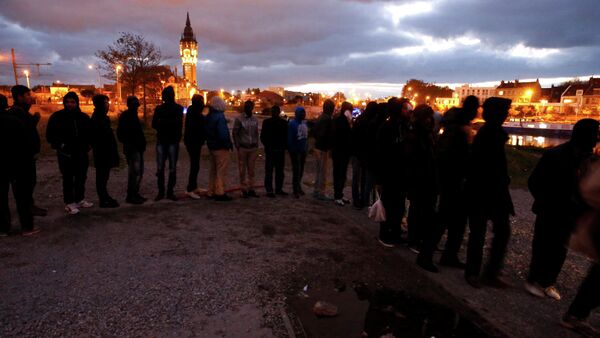MOSCOW, November 5 (RIA Novosti) — Migrants from the European Union put excessive pressure on British public services, UK Minister for Immigration and Security James Brokenshire said Wednesday.
In response to the report issued Wednesday by the Centre for Research and Analysis of Migration of University College London stating that Britain benefited from the EU migrants more than spent on them, the minister claimed that the report overlooked the excessive pressure on the country's public services.
"What it [the report] doesn't assess is the impact on public services — on our schools, on our hospitals, on our roads, those sorts of direct pressure we see in our communities. And so, I think we do need to be taking a broader view rather than necessarily being focused on purely economic issues… This is an interesting piece of work. But I think it is narrow in its focus," Brokenshire commented.
The minister emphasized the scale of the migrants' influx the country has been facing recently and the repercussions it is likely to have.
"This report covers a period where EU migration was not at the level that we see today. Net migration from the EU has doubled over the course of the last 18 months. It also doesn't take account of the fact that people will stay, people may have children, people may use public services. And it is these pressures on public services that are felt very keenly because of the speed and rate of change of migration," Brokenshire underlined.
The minister positively assessed British Prime Minister David Cameron's proposal to limit the number of newcomers from the European Union.
"We want to see a migration system that is sustainable for the long term. That does attract the brightest and the best, the skilled and the talented that can contribute to a long-term economic plan," Brokenshire concluded.
According to the report, immigrants who came to the UK after 2000 had contributed 20 billion pounds ($31 billion) to the country's economy by 2011, paying more in tax than they received in benefits.
Ahead of May 2015 national election in Britain, Cameron's Conservative party has announced it could limit immigration from other EU countries in case it is re-elected. Moreover, Cameron has claimed he would hold a referendum on the British membership in the European Union in 2017 in case he wins the May national election.
Such a move comes as the Conservative party is losing momentum to the most eurosceptic party in Britain — UK Independence Party (UKIP) — that has been gaining ground both domestically and in the European Parliament recently. UKIP advocates the strictest approach to the immigration issues.
German Chancellor and the European Commission have condemned Cameron's intentions and said that these are violating one of the basic EU principles – freedom of movement.


